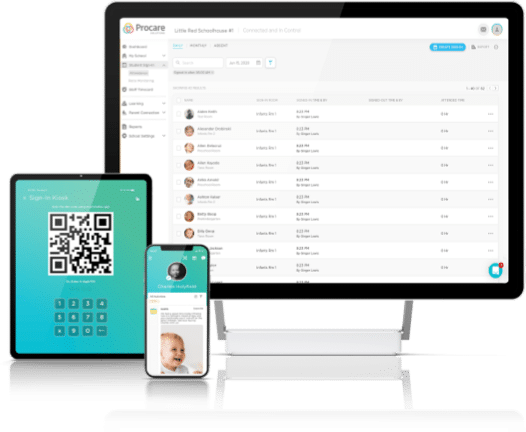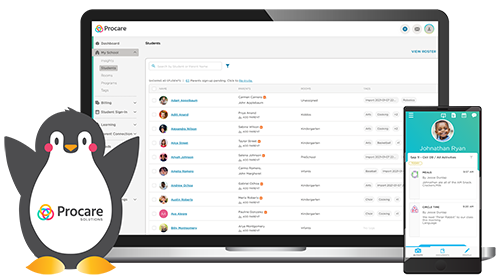
Are you planning to open a child care business in Michigan?
We know there’s significant demand for affordable and accessible child care in the State of Michigan, but before you can start offering your services, you’ll need to connect with Michigan government agencies and obtain the right type of Michigan child care license for your business.
In this guide, we provide all the information and resources you’ll need to successfully navigate the Michigan State child care licensing process. We will identify and define the three types of child care businesses regulated in Michigan and explain how to determine which license type is right for your business. We’ll also provide step-by-step instructions for navigating the Michigan child care licensing process, from determining your eligibility through to passing inspections and receiving your license to operate.
Let’s get started!
Michigan Child Care Licensing Overview
Child care licensing in Michigan is administered by the Department of Licensing and Regulatory Affairs (LARA), whose mission is to protect people and promote Michigan businesses through transparent and accessible regulatory solutions.
LARA provides licensing services for three types of child care operations: family child care homes, group child care homes, and child care centers. The following table gives a summary of each of these child care license types, its definition under Michigan law, and where to find the associated rules and regulations.
| Child Care License Type | Definition | Rules and Regulations |
| Family Child Care Home (FCCH) License | An FCCH license allows a provider to care for between 1 and 6 children for less than 24 hours a day. This limit does not include children who are related to an adult family member. Care must be provided in a private home where the licensee is a permanent resident and household member. | Licensing rules for family child care homes can be found in Sections 400.1901-400.1963 of the Michigan Administrative Code. They can also be found in document form on the LARA website. |
| Group Child Care Home (GCCH) License | A GCCH license allows a provider to care for between 7 and 12 children for fewer than 24 hours a day. This limit does not include children who are related to an adult family member. Care must be provided in a private home. | Licensing rules for group child care homes can be found in Sections 400.1901-400.1963 of the Michigan Administrative Code. They can also be found in document form on the LARA website. |
| Child Care Center (CCC) License | A CCC license allows a provider to care for one or more preschool or school-aged children for fewer than 24 hours per day. Facilities that provide care for 2 consecutive weeks or more require a CCC license, regardless of how many hours they operate each day. | Licensing rules for child care centers can be found in Sections 400.8101-400.8840 of the Michigan Administrative Code. The licensing rules can also be found in document form on the LARA website. |
Once you’ve determined the correct child care license type for the business you plan to operate, it’s time to start the application process.
Let’s take a closer look at the steps you’ll need to follow as you work towards obtaining your Michigan child care license.
How to Get Your Michigan Child Care License

Step One: Make Sure You’re Eligible
Before you contact LARA or file a child care license application, it’s important to make sure you’re eligible to run a child care business in the State of Michigan.
If you’re applying for a family or group child care home license, you must be at least 18 years of age. You must also have earned a high school diploma or GED.
Child care centers are required to have a program director present in the center who is at least 21 years of age, has earned a high school diploma or GED, and has satisfied additional program director requirements outlined in MCA R 400.8113.
Michigan’s child care laws also require that licensees are suitable to meet the needs of children and must act in a manner that promotes child welfare. Applicants will need to pass a comprehensive background check through Michigan’s child care background check system.
Step Two: Learn about Michigan’s Child Care Laws
As a licensed child care provider in Michigan, you are expected to comply with Michigan child care laws and licensing rules.
In the table above, we’ve provided links to the specific licensing rules for all three types of child care operations that are licensed through LARA. Before you start the child care license application process, we’d recommend reading through these rules and making a plan to achieve compliance before you open your business to the public.
Child care businesses in Michigan must also operate in compliance with Michigan’s Child Care Organizations Act, Child Protection Law, and portions of the Michigan Vehicle Code that deal with child restraints and booster seats.
Step Three: Complete the Online Application Process
Once you have read and understood Michigan’s child care laws, and are confident that you can comply, it’s time to submit your child care application.
To get started, you’ll need to create a MiLogin account. MiLogin is a centralized access portal for a variety of Michigan State services, including unemployment, socialized medicine, and of course, child care licensing. Once you create an account, you’ll be able to download and print the appropriate license application packet for your child care business.
As part of your application, you’ll need to provide specific and detailed information about yourself and the child care business you plan to operate. Your application must be submitted with supplementary documentation, including things like:
- Documentation of a negative test for tuberculosis (TB)
- Documentation of having completed CPR, First Aid, and Blood-Borne pathogen training
- Proof of heating systems and radon inspections
- Proof of program director qualifications
- A staffing plan
- A program plan and discipline/behavior management policy
- A list of equipment that will be provided for kids
- Emergency and evacuation plans
- A schedule of operations
Your application packet will state exactly which documents are required and provide instructions for satisfying all of the planning requirements in the licensing process. If you have additional questions, you are encouraged to contact a licensing consultant at LARA for further details and clarification.
Step Four: Complete Environmental Health Inspections
You will need to obtain a variety of facility inspections for your child care business before you may receive a child care license in Michigan. These typically include:
- A fire safety inspection, conducted by a qualified fire safety inspector (click here for a list of licensed inspectors in Michigan).
- An environmental health inspection conducted by the appropriate local health department.
- A playground safety inspection conducted by a Certified Playground Safety Inspector (CPSI) approved through the Bureau of Community and Health Systems, Child Care Licensing Division (click here for a list of approved vendors).
- A lead hazard risk assessment, if the building where your child care business will be located was constructed before 1978.
- An inspection of the heating system for your child care business.
Step Five: Attend a Licensing Orientation Session
Once you have completed your child care licensing application and passed the necessary inspections, you must attend a mandatory orientation session through your local child care licensing office. This orientation lasts approximately 6 hours, during which you will review the applicable child care rules and laws in preparation for your licensing inspection.
If you have applied for an FCCH license, you will receive a Statement of Registration after completing the orientation session. Signing this statement certifies that you are in compliance with Michigan’s child care laws. Once you return the signed statement to LARA, you will receive a Certificate of Registration for your family home child care business. This certificate allows you to operate your business for 3 years, provided you remain at the same address and stay in compliance with child care licensing rules.
If you have applied for a group child care home or child care center license, you will not receive a Statement of Registration and may not begin providing care prior to passing your licensing inspection.
Step Six: Pass Your Licensing Inspection
During the licensing process, a consultant from LARA will conduct an on-site inspection of your child care facility to assess your compliance with Michigan’s child care laws.
If you have applied for an FCCH license, this inspection will typically occur within 90 days of receiving your certificate of registration. If you have applied for a different type of license, this inspection may be scheduled at a mutually agreeable time during the licensing process.
To speed up the application process, it is recommended that you are fully in compliance with Michigan’s child care licensing requirements at the time of your licensing inspection.
Step Seven: Receive Your Michigan Child Care License
Once you have met the eligibility requirements, submitted a complete child care license application, passed all relevant inspections, and demonstrated compliance with Michigan’s child care laws, LARA will determine whether to issue a license for your child care business.
If you are successful, you will receive a provisional child care license, valid for a period of 6 months. After this six-month period, you will need to submit a license renewal application and you will again be inspected by a LARA consultant to verify your ongoing compliance status. If your renewal application is successful, a regular license will be issued with validity for a period of two years.
Congratulations on starting your child care business in Michigan!
Manage Your Michigan Child Care Business with Procare Solutions

Are you excited to start managing your child care business and provide valuable child care services to families in your community? Procare is here to help, with trustworthy and easy-to-use child care management software that makes life better for child care providers, administrators, and parents.
Our expertise in child care and years of experience have helped us create simple solutions for child care billing, attendance management, and child care security. We’ve made it easier than ever for child care business owners in Michigan to stay organized, engage with parents, and comply with State standards and regulations for child care.
Ready to see how Procare can help your child care business succeed?






